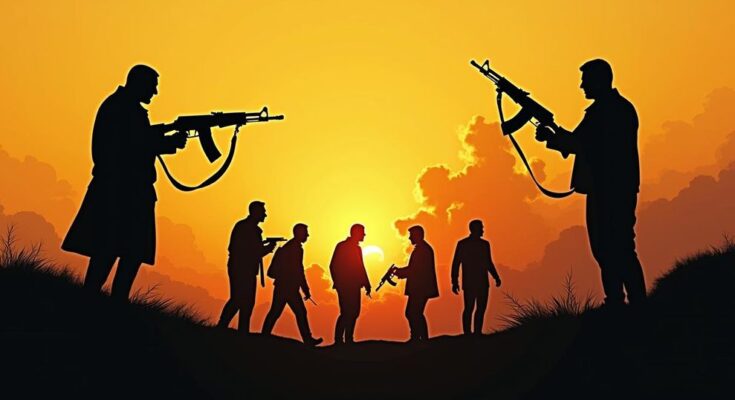The assassination of Hezbollah leader Hassan Nasrallah by Israel has created significant unease in the Middle East, prompting fears of potential Iranian retaliation and escalating regional conflict. Analysts are closely watching for the repercussions of this act, which signifies a notable shift in Israel-Hezbollah dynamics.
The recent assassination of Hezbollah leader Hassan Nasrallah by Israeli forces has sent shockwaves throughout the Middle East, eliciting concerns over possible retaliatory actions from Iran and the specter of a more extensive regional conflict. In light of this development, analysts are closely monitoring the political repercussions and military responses that may unfold in the coming weeks. Nick Schifrin, reporting from Tel Aviv, elaborates on these pressing issues and the potential consequences of this escalation. This shocking event signals a significant shift in the already volatile dynamics of Israel-Hezbollah relations, as Nasrallah was a key figure in the organization, which has long been at odds with Israel. As the region braces for the fallout, there are increasing fears that Iran, a major ally of Hezbollah, may choose to retaliate, thus igniting a wider conflict. The ongoing situation remains fluid, and observers are left to speculate about the next steps for all parties involved.
The assassination of Hassan Nasrallah is rooted in a long history of conflict between Israel and Hezbollah, a militant group based in Lebanon that has engaged in multiple confrontations with Israeli forces over the years. Nasrallah has been a central figure in Hezbollah, leading the organization since 1992 and playing a pivotal role in its operations against Israel. This killing not only escalates the hostilities but also raises the stakes for regional players like Iran, which has provided extensive support to Hezbollah. Understanding the historical tensions, ongoing military engagements, and regional alliances is crucial to grasping the potential fallout from Nasrallah’s assassination.
In conclusion, the assassination of Hezbollah leader Hassan Nasrallah marks a significant and perilous escalation in the tensions between Israel and Hezbollah. The international community is keenly observing the potential for retaliation from Iran and other affiliated factions, as the implications of this act could lead to broader military conflicts across the region. As the situation develops, the responses from both Hezbollah and Iran will be critical in determining the immediate future of Middle Eastern geopolitics.
Original Source: www.pbs.org




